Google has always been refining its algorithm to produce the best search results for users.
Aside from the constant changes in Google SERPs, it updates its Google Search Quality Raters Guidelines regularly.
This 168-page document last updated on December 5, 2019, contains everything you must do to get your page ranking on top of organic search.
Being wary of these guidelines will dictate the success of your SEO strategy, especially if you have a site in the healthcare and medical industries.
In this post, we will talk about the two most prevalent factors from the guidelines. After reading this, you should know how you can optimize your site for both.
What is Google E-A-T?

E-A-T stands for expertise, authoritativeness, and trustworthiness.
EXPERTISE – Expertise refers to how knowledgeable the author is about the subject. If the author can break down a complex topic into sections that its audience can understand, the higher his or her expertise about the topic is.
AUTHORITATIVENESS – Authoritativeness alludes to the author and the website. On one hand, a person must have the proper credentials and accolades to prove his or her qualifications in authoring a piece of content.
On the other, a website won’t rank just because it has a few pieces from expert authors about its niche. The authority, in this case, must be displayed sitewide – experts in their respective fields must produce all its content.
Therefore, having lots of authoritative pieces elevates the credibility of the website, making it a reliable one-stop online resource about the topic.
TRUSTWORTHINESS – Trustworthiness is the byproduct of having authoritative content written by experts in your site. The number of people sharing your articles, mentioning your brand on social media, and linking to them as resource pages in their sites indicates trust.
All these factors help compute a page’s quality score. If the page’s content satisfies all three factors, it has a better chance of ranking on top of search results.
For medical or healthcare site owners, E-A-T is more important than ever.
Since you’re putting out information about a person’s health and well-being, users are putting their hands into your care. And if they follow erroneous information on your site, it could produce damning long-term effects to people.
As a result, your site will receive the lowest rating based on E-A-T and will drop out of SERPs.
What is the YMYL Google Algorithm Update?
E-A-T is tied in with YMYL, which is an acronym for “Your Money, Your Life.”
As the term suggests, YMYL pages are those that can impact or influence one’s happiness, finances, security, and others.
It was first introduced in the 2013 version of the Search Quality Raters Guidelines. However, it was only until the Medic Update when the term was taken seriously.
In August 2018, Google’s underwent a broad core algorithm update that affected 42% of sites in the health niche.
Source: Search Engine Roundtable
Aside from health, other sites in industries like e-commerce, business, and finance were affected by the update as well. All these fall under the YMYL category.
Unlike other pages, YMYL pages involve putting your money and your health in the hands of these pages.
For example, e-commerce product pages require its audience to spend money to purchase a product or service. The assumption is that the website will deliver the goods and benefits that go with using the items as promised in the page.
So, if the products cannot meet the expectations of customers after receiving it, the pages are making a negative impact in the lives of people. And because people would soon lose trust on these pages, expect their SERP rankings to drop.
With health-related pages, following the wrong medical advice from a website could lead to potentially fatal results. And since it’s in Google’s best interest to show the best and most reliable pages on top of search, inaccurate information will be taken down from SERPs.
How to Improve YMYL and E-A-T Scores
If you took time to read the Search Quality Raters Guidelines, it should be clear you need to create high-quality pages on your site if you want to rank on Google.
There were no mentions of backlinks and off-page factors. Therefore, if you want to sustain your health site’s rankings on organic search, you must maintain high standards for its pages.
However, the Guidelines (and Google in general) didn’t identify how you can improve your scores for both.
Nonetheless, they have provided us with actionable steps on how to make your site pages more E-A-T in the eyes of Google. Below are the most important ones.
E-A-T Website Best Practices
To begin, you need to set up the elements on your site to show people that they can put their faith on your website.
With lots of online threats looming, taking the extra steps to do the following below will help separate your site from the pack. More importantly, search spiders pick up on these signals to help rank your site for your topic.
Secure Your Site
Securing your site works both ways. It prevents hackers from attacking your site and stealing not only its data but also your user’s.
But before people sign up as users, you must show them that it’s safe to enter their information on your site. You can do this by setting up an SSL certificate.
You can identify sites with this certificate by looking for the padlock icon beside the domain URL on the browser.
With this, the website encrypts the information entered by users in its forms. This way, hackers can’t see the data as it passes from browser to web server.
Most web hosting providers offer free SSL certificates like Let’s Encrypt. If the web host you’re using doesn’t, you can sign up for one at SSL.com.
Source: SSL.com
Once you’ve made your site safe for users, you must make your site safe from hackers next. Tools like Sucuri, Astra, and SiteLock monitor and protect your site from potential attacks.
Having any of these run in the background lets you focus on giving the best to your audience.
ToS + Privacy Pages
Online users are also concerned with how websites gather user information. While some site owners use it to analyze their website performance, some harvest user data for more nefarious purposes.
Visitors go to your site to find information about a topic – they didn’t go there to receive unsolicited emails or, worse, maliciously attacked by online threats later.
That’s the reason a Privacy Policy page is required for all sites. It discloses to visitors if the site is collecting their data (name, email address, IP address, etc.) and what it intend to do with them.
Another document you need to set up on your site is Terms of Service. It includes disclaimers, copyright notices, returns and refunds policy (for e-commerce sites), and others. These serve to protect the site and limit its liabilities regarding its visitors.
The goal of both documents is to achieve transparency. By stating how people can and should use your site, you provide them a reason to trust your site.
If you don’t have either pages yet on your site, you can use tools like TermsFeed to generate them for you.
Source: TermsFeed
The legal agreements you can create using this tool are compliant with GDPR, CCPA, and CalOPPA, among others. This ensures that your site meets the regulations observed in your jurisdiction.
NAP (Name, Address, Phone Number)
This refers to the name, address, and phone number of your business.
NAP plays a crucial role in showing geo-targeted results. The idea is to get your site listed on the most relevant directory sites using the same NAP.
In doing so, it can rank on Google’s local 3-pack that appears before organic search.
However, issues arise when sites have inconsistent listings across online directories. For example, a business moves to a different location or changes its number and doesn’t update its NAP on all directories.
Thus, ranking for the site would be harder because it has conflicting information for its NAP.
Another instance is when a business has misspelled words or phrases or incomplete addresses in some directories. Even if the details are correct, the discrepancies across the directories about the site’s NAP could lead your audience to confusion.
In fact, a study conducted by Moz shows the appearance of NAP and its consistency across different sites is a local ranking factor.
Source: Moz
Therefore, make sure to update entries on online directories you’ve signed up for.
For starters, you can set up a Google My Business account for your website. Here, you can manage how your business would appear on Google SERPs if users search for your related terms.
You can then sign up or update your profile on sites like Yelp, Yellow Pages, Facebook Pages, and others. Make sure that the NAP on all your profiles are the exact same.
Content Must Be Authored by an Expert
If you seek medical advice, you ask a licensed and practicing doctor. The same thing goes for Google.
Content produced by someone with medical credentials bears more weight compared to a writer who simply curated information online.
This reason is why lots of health-related sites got burned during the Medic Update. Health-related topics attract lots of searches, which prompted people to create sites about them to take a portion of their search volumes.
However, instead of using medical professionals to discuss the subject in depth, they employed general writers to produce the content for them. Because they don’t have the expertise to discuss the subject, they pulled information from existing pages instead.
Google eventually smartened up and dropped these sites from SERPs. A perfect example of Medic Update’s casualty is ketodash.com:
Nowadays, you’ll see content authored by medical experts on top of SERPs for health-related keywords authored by people like the one below:
On top of their credentials, it would even be better if they have an online presence that will allow search spiders to confirm their identity.
If you want to hire medical writers to legitimize your health websites, you must know they don’t come cheap. For example, Kolabtree has medical writers between rates of $20-100 an hour.
Source: Kolabtree
These writers have earned medical degrees and are also practicing doctors, which should explain their rate.
Medical writers in remote talent platforms like Upwork might interest you because of their more affordable rates. However, unless they have medical credentials that your readers can trust, it’s best to go with the safer, albeit more affordable, choice.
Whether you like it or not, you really must spend top dollar to get qualified writers to shore up your health site’s content needs.
Build Site’s Authority
It’s one thing for your content to be written by an authority in the field. It’s another to boast sitewide authority.
Aside from getting experts to churn out insightful content on your site, you need to get other people to engage with your site.
This is where off-page factors come into play. While the Guidelines concentrate on improving your site page’s quality scores, backlinks and even brand mentions help search spiders connect the dots between your site’s content and what people think about it.
They wouldn’t link to it or mention your brand name on social media organically unless your content is top notch.
Backlinks
For starters, ensure that your page is worthy of backlinks. You can achieve this by implementing the Skyscraper Technique.
The idea is to produce the best content about the subject. That means creating an exhaustive guide that covers everything related to its topic. This tactic worked wonders for Brian Dean from Backlinko, who raised his site’s traffic by being able to acquire backlinks from his skyscraper content.
Source: Backlinko
When creating skyscraper content, it’s important to take keyword intent into account. You don’t want to cover points not relevant to the target keyword.
For example, if you are optimizing for a keyword answering the question “why,” it’s best to disregard answers to the questions “how,” “what,” “when,” and others.
To help expedite the link building process, he ran an outreach campaign by emailing his targets and coming up with creative ways to ask them to link to his content.
Brand Mentions
Regarding brand mentions, encourage more people to share your content on social media.
Have social sharing buttons ready on your site so visitors can broadcast your post on Facebook and Twitter with just a few clicks.
Also, your social shares serve as proof to Google that your content is gaining traction with its audience.
There are lots of variables to help increase the social shares of your content. One of them is having an author bio on your articles.
Source: OkDork
Having an author bio inspires trust, which nicely ties in with the previous point.
Healthline is the biggest beneficiary of the Medic Update. A reason why can be attributed to the credibility its content exudes from the author bylines.
The site features the writer and the reviewer of the content in the author byline. From the perspective of readers, they can rest assured that the article is as accurate as it can get.
Having these variables in your content, you can increase the credibility of your site by potentially generating more social shares.
Certification
Having people share your content online can go a long way in building your authority. But it’s even better for a respected governing body in your niche to grant a certificate to your website or app.
Consider this as the ultimate seal of approval – the certificate proves that your site meets the requirements of being an authoritative website in your industry.
At the very least, it is a good way to make your site compliant to the best practices of being considered as a site that people can trust.
For health sites, you can apply for a certificate at Health on the Net.
Source: Health on the Net
By applying for a certificate from the site and submitting the requirements, the HONcode team will review your site if it meets the principles found in the image above. If necessary, the team will suggest ways on how to make it compliant to the principles.
After an in-depth and stringent evaluation, you will receive a personalized HONcode seal you can display on your site for added social proof.
Before getting the seal, you need to pay for an annual fee. The team will then re-evaluate your site the following years before renewing your seal. Also, Health on the Net reserves the right to decline sites for certification.
Getting certification from authoritative bodies in your niche will require you to jump through hoops. However, consider the fact that this is what it’ll take for your site to leapfrog the competition and rank on top of SERPs.
Generate Positive Reviews
For people running health businesses online, the best way to build trust with your audience is through positive reviews.
There’s a reason why over 92% of people refer to reviews first before making an informed decision.
Customer reviews about a business are unbiased and objective, which gives you a better idea on how it operates.
As a business owner, you want to leave a positive impression with your customers. At the same time, you want to make it easier for them to let other people know about their experience dealing with your site.
To do this, sign up your business to sites like Yelp and set up a profile there where customers can share their reviews.
Another way to collect customer reviews is through your Google My Business profile.
In particular, it shows not only your business information but also customer reviews.
The higher your reviews, the more likely users will click on your business for bookings or appointments.
To gather the reviews, you must link your Yelp and GMB profiles from your site so they can leave their reviews there. You can also launch an email campaign asking customers to review your business on both sites.
Once you have enough reviews, feature them on your site as social proof to help visitors make an informed decision.
Now, you cannot help it if some people would post bad reviews about your site. It is in your best interest to provide a timely, professional, and measured response.
Even if they seem to be unfair and critical in their review, you must give them the same courtesy that you give your best customers.
At the same time, find a way to turn a negative into a positive. Maybe the issue stems from a misunderstanding or miscommunication that requires your additional help.
If not, the best you can do is take in their criticisms in stride and use it to fuel your business for the better.
Final Thoughts
On one hand, it feels unfair for Google to be more stingy in dealing with healthcare marketing agencies and YMYL websites. However, considering what’s at stake, it’s for the best to make your sites as authoritative and trustworthy as possible.
By observing the guidelines regarding E-A-T and YMYL pages, you should be able to beef up your site with content produced by experts in their respective fields. This way, you not only get into the good graces of Google but also deliver the right information to people who need them the most.









